Wir haben uns dazu entschieden, uns vom Begriff „LGBT*IQ“ zu verabschieden. Das Spektrum erweitert sich stetig und es ist uns wichtig, alle sexuellen Orientierungen und geschlechtlichen Identitäten in unserer Kommunikation einzuschließen.
Stattdessen verwenden wir ab diesem Jahr den Begriff „Queer“. Queer ist ein Sammelbegriff für alle Personen, deren geschlechtliche Identität und/oder sexuelle Orientierung nicht zweigeschlechtlich, cis-geschlechtlich und/oder heterosexuell ist.
Der Begriff zeichnet sich dadurch aus, dass er Identitäten nicht scharf abgrenzt, sondern dass seine Bedeutung sich ständig verschiebt. So stellen wir sicher, dass wir wirklich alle Personen ansprechen und niemanden exkludieren.
Aus unserem Slogan „LGBT*IQ geht alle an.“ wird „Queer geht alle an.“ – denn es geht uns ALLE an!
“Wir haben im Laufe der letzten Jahre vermehrt Anfragen bekommen, ob wir unser Akronym ‘LGBT*IQ’ erweitern können. Da wir niemanden in unserer Kommunikation ausschließen wollen – das mit dem Akronym aber immer schwieriger umzusetzen ist – haben wir uns für den Begriff ‘Queer’ entschieden”, so Albert Kehrer, Vorstand der PROUT AT WORK-Foundation. “Der Begriff taucht auch in politischen Diskussionen vermehrt auf und wird insbesondere von rechts-konservativen Politiker_innen verstärkt abgelehnt – weshalb wir damit auch ein Zeichen setzen wollen: Wir unterstützen die gesamte Community, einschließlich aller geschlechtlicher Identitäten und sexueller Orientierungen!“
Ihr habt Fragen dazu? Schickt uns gerne eine Nachricht über unsere Social-Media-Kanäle oder eine E-Mail an info@proutatwork.de.
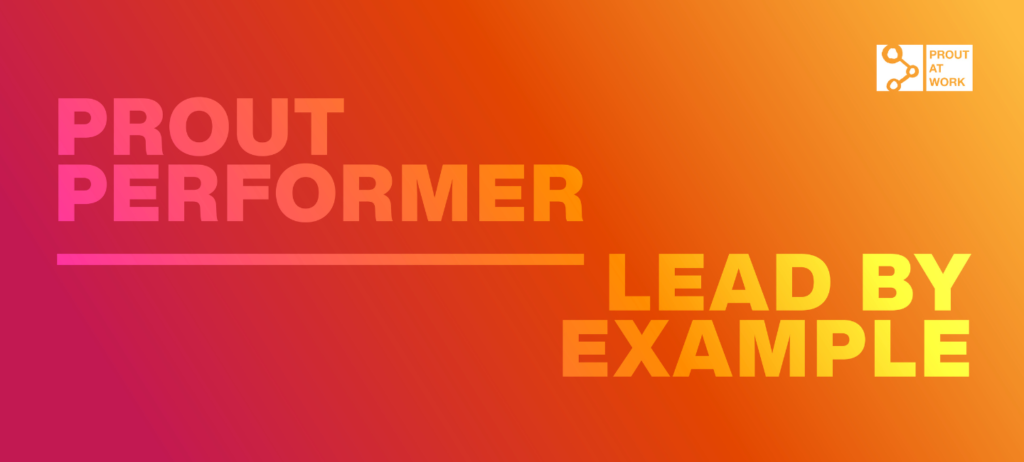
Empathy is key
The PROUT PERFORMER lists continue to spark great popularity. They offer a platform for queer role models in the workpalce and create visibility for committed people from very different fields of action. At the same time, the PROUT PERFORMER project thrives on active networking – on exchange in presence. After the successful kick-off event in 2022 (which took place in the RTL Audio Event Lounge in Berlin at the end of the year), we were delighted to be able to continue the event format in 2023.
Thanks to the support of our PROUT EMPLOYER Fujitsu, we were able to invite all the list winners and jury members from previous years to the Fujitsu headquarters in Munich at the beginning of December. In addition to finger food and drinks, an attractive supporting program awaited the guests.
After an inspiring opening by Gerd Jooss from the Fujitsu Pride Network, Florian Siekmann (member of the Bavarian state parliament and deputy parliamentary group leader of the Greens) gave a keynote speech on the status quo of the queer community and placed current developments and events vividly in a larger political context.
Afterwards, the guests listened to an exciting input from Magdalena Rogl (Diversity & Inclusion Lead at Microsoft Germany) about Empathy. Magdalena has been working in the online world for over 15 years. For her extraordinary career path from childcare worker to the digital industry, she was honored with the Digital Female Leader Award and as one of the “25 women who are revolutionizing our economy”. Her first book “MitGefühl – Warum Emotionen im Job unverzichtbar sind” was published in October 2022.
The following on-stage discussion with PROUT AT WORK CEO Albert Kehrer, various topics relating to emotionality at work and diversity were explored in more detail. Among other things, the two discussion partners addressed the question of how we can use a reflective, mindful approach to emotions as a compass to better understand ourselves and others. Or how important the role of role models is in making diversity visible in the company.
After the program, the guests had the opportunity to make themselves comfortable at bar tables and various seating areas in the attractive event location and to engage in informal discussions with one another over snacks and cool refreshments. After the event, we were delighted with the positive feedback from the participants and are already planning further PROUT PERFORMER networking events. Two are planned for 2024.
Impressions
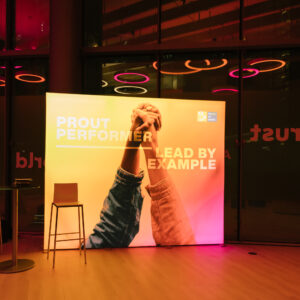
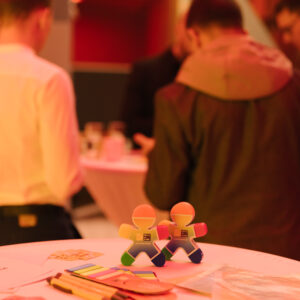
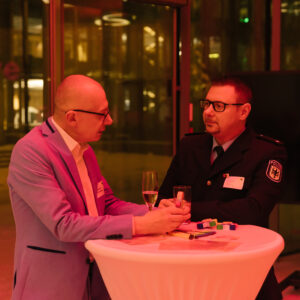



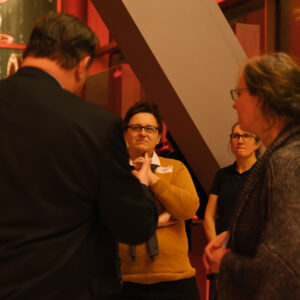
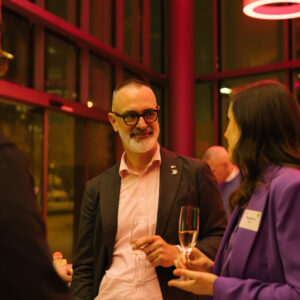
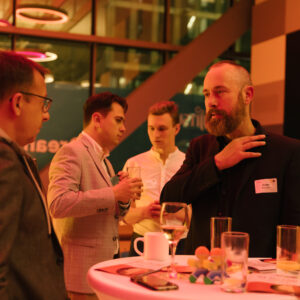

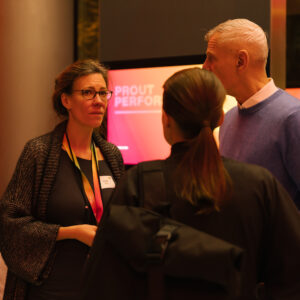
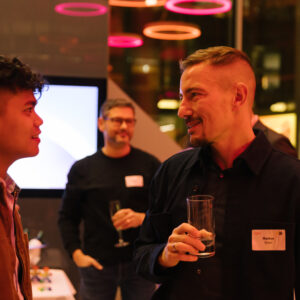
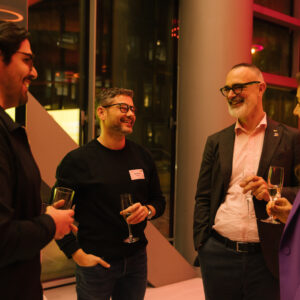
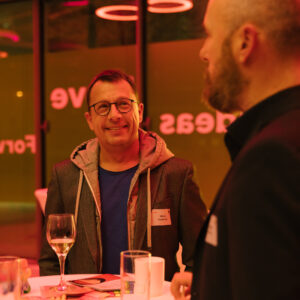

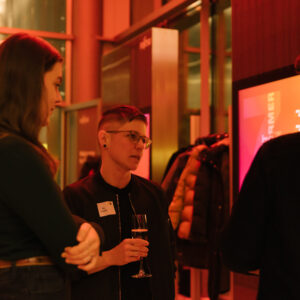
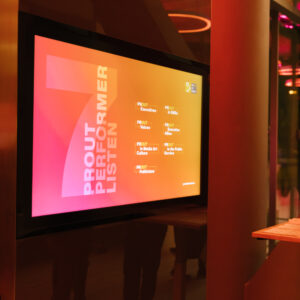


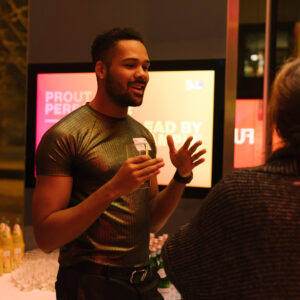
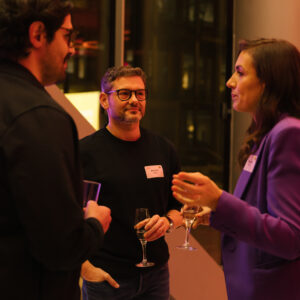

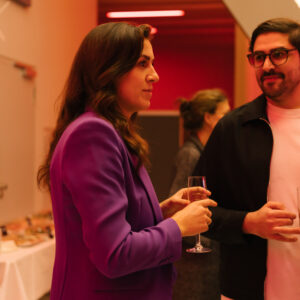
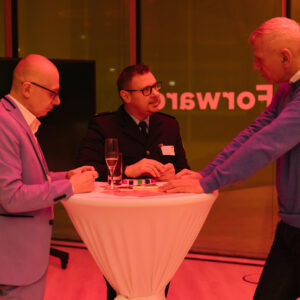
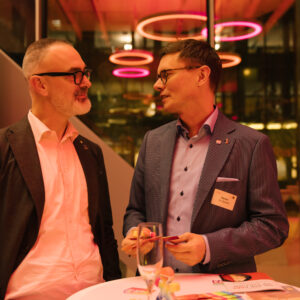
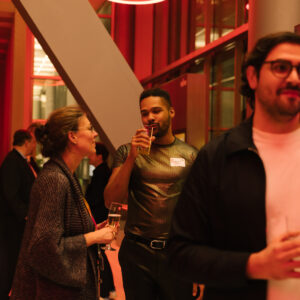
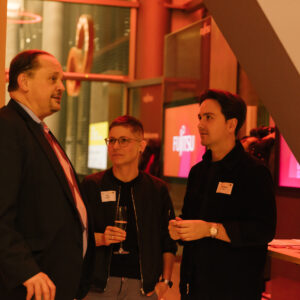
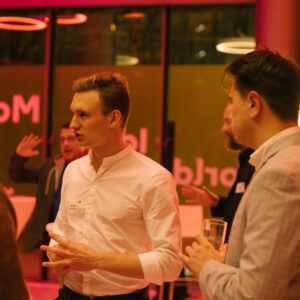
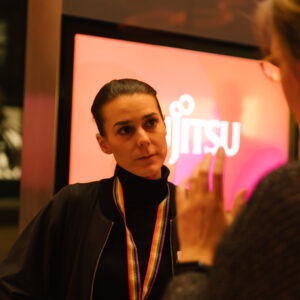
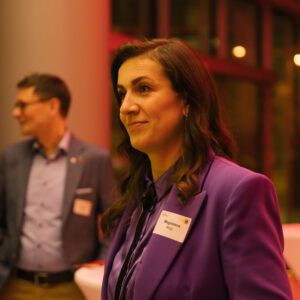
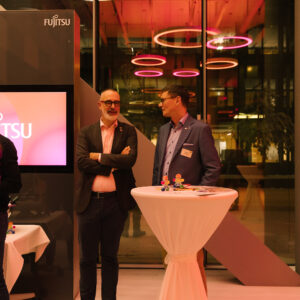
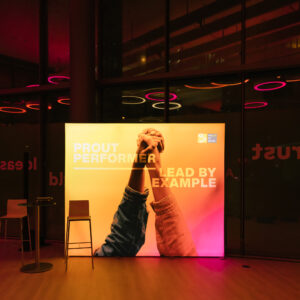



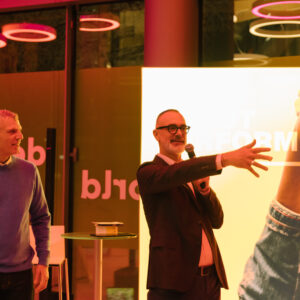
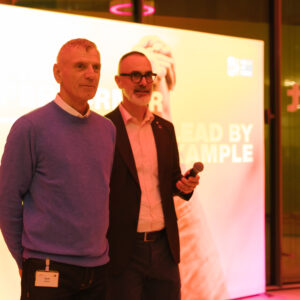
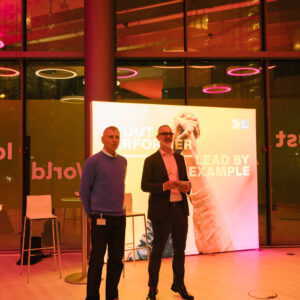
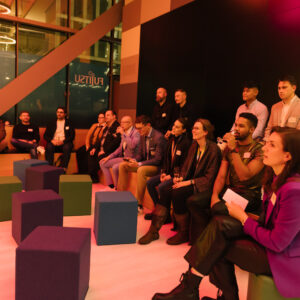
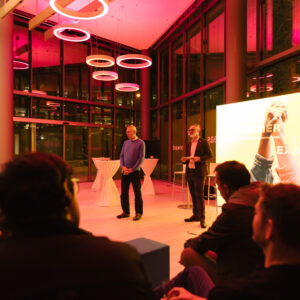
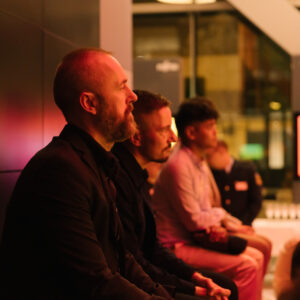
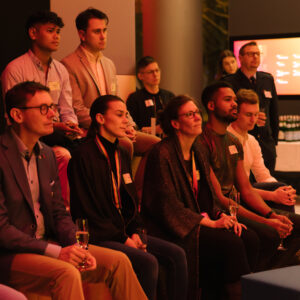
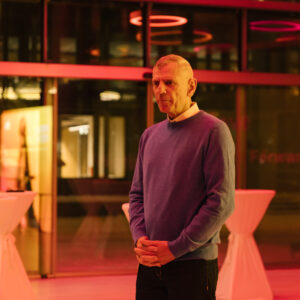

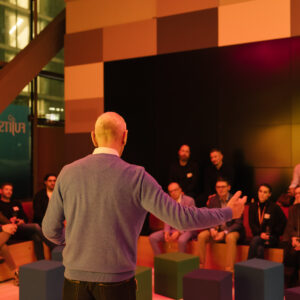
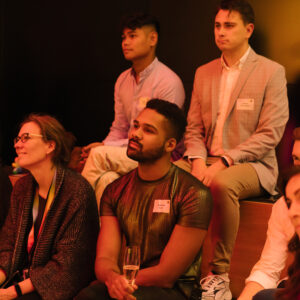
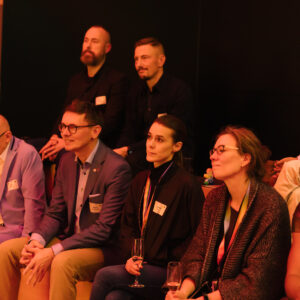
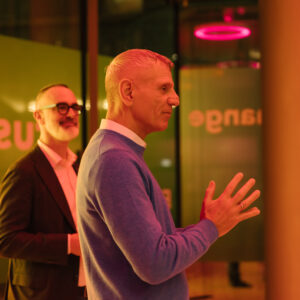
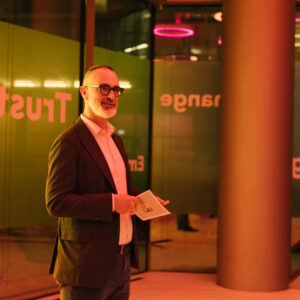
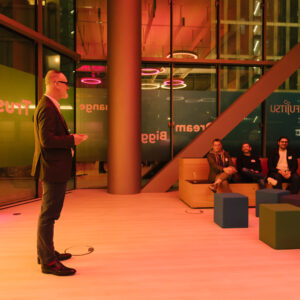
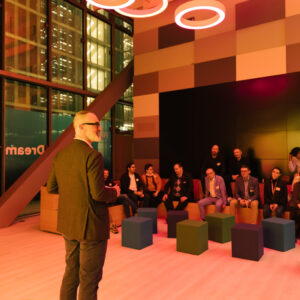
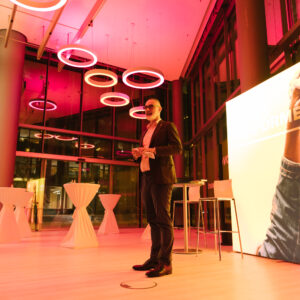
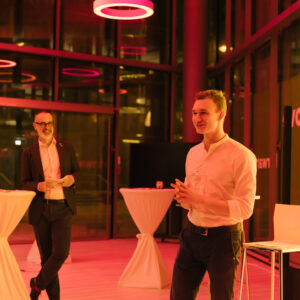
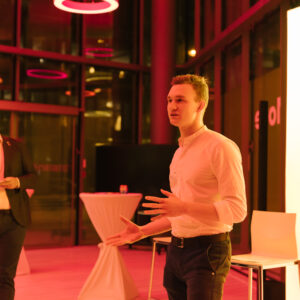
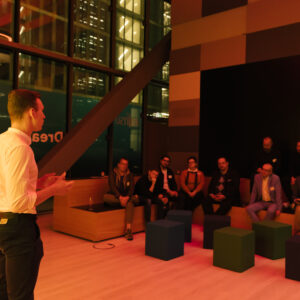
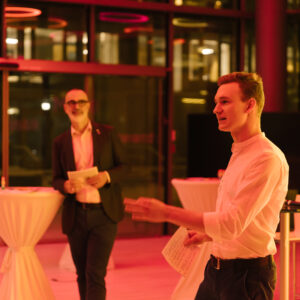
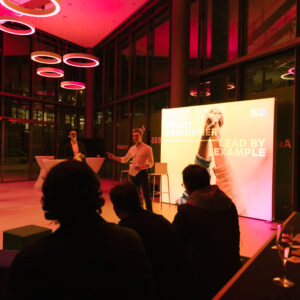
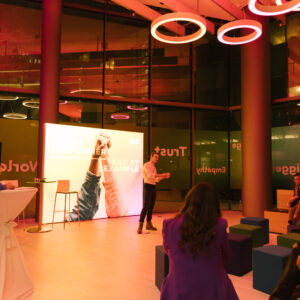
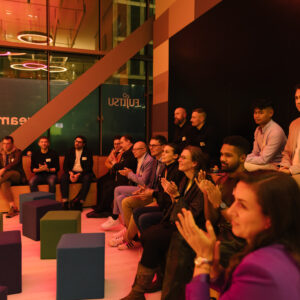
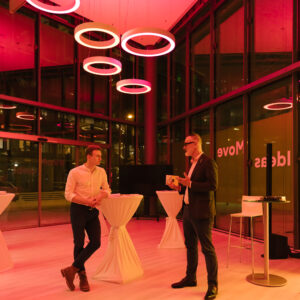
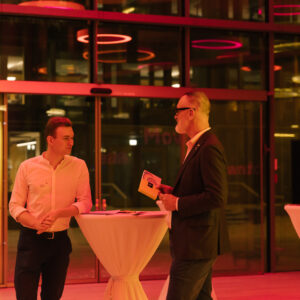
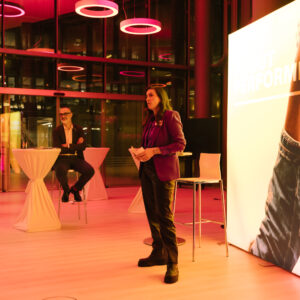
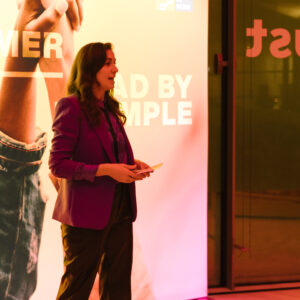

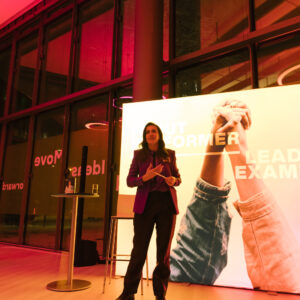
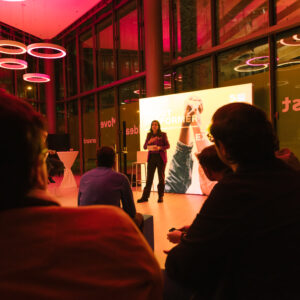
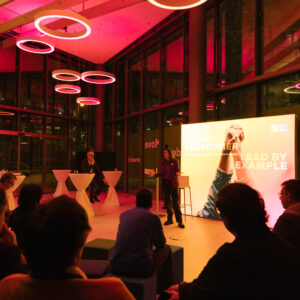
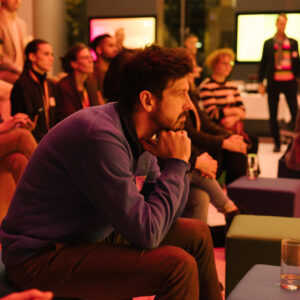
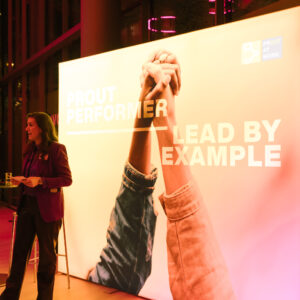
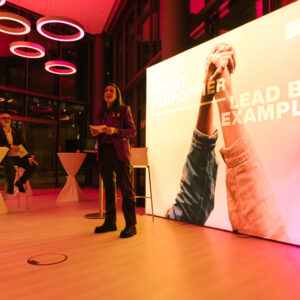
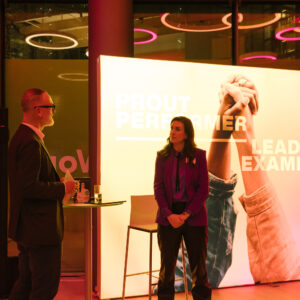
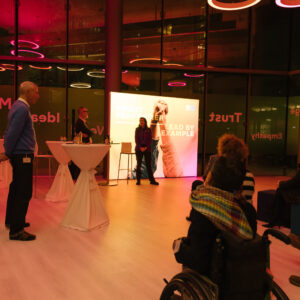
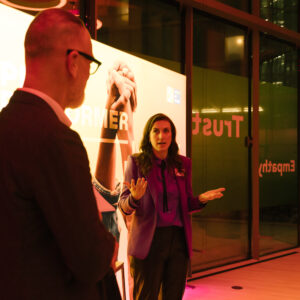
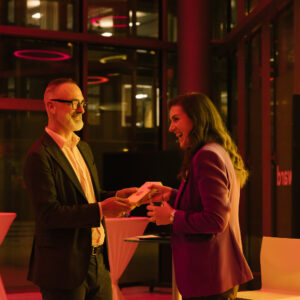

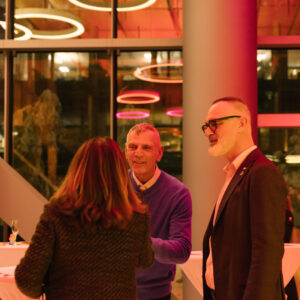
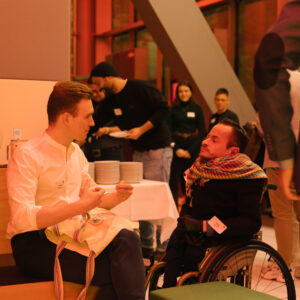
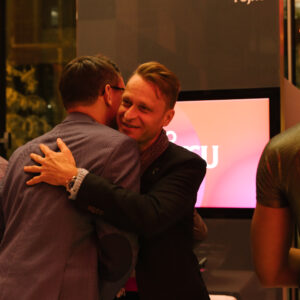
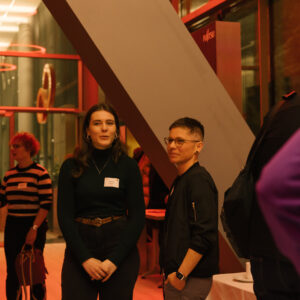
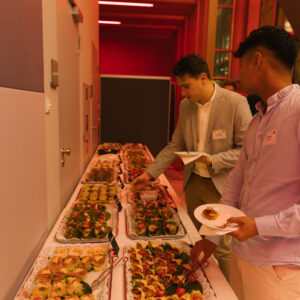



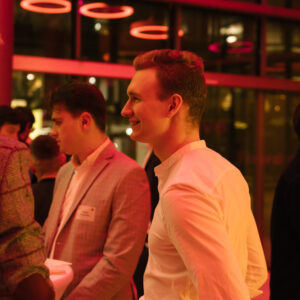
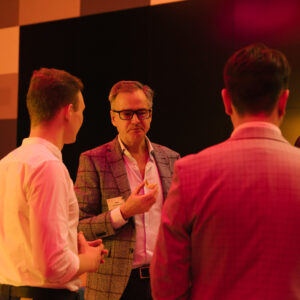





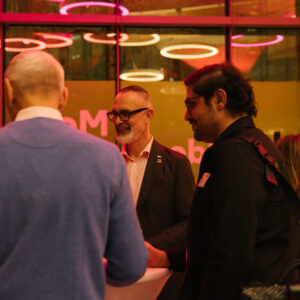
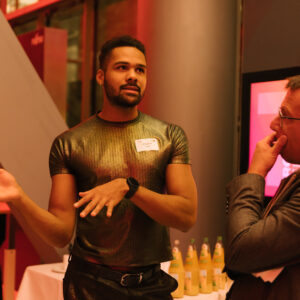

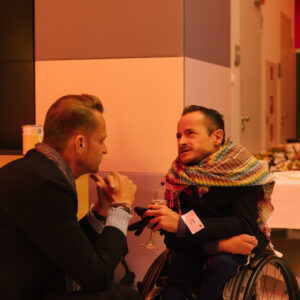
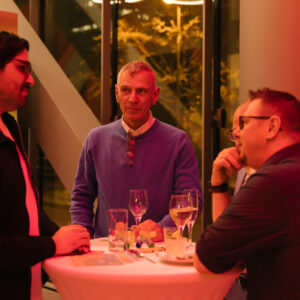
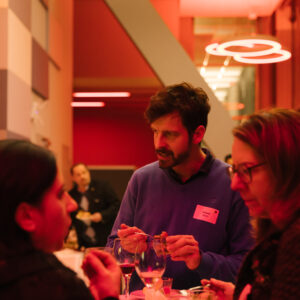
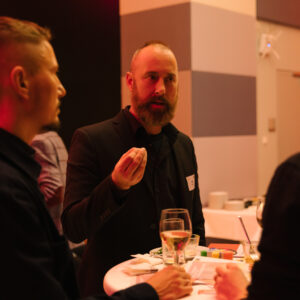

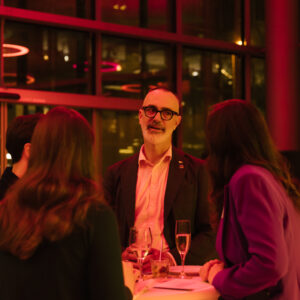
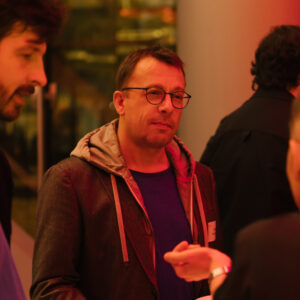


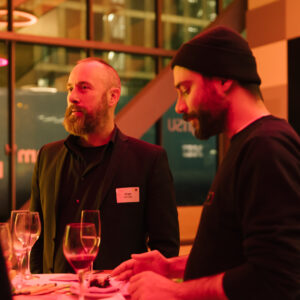
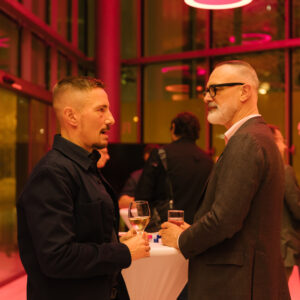
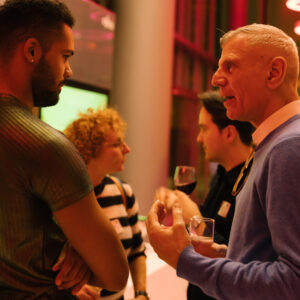

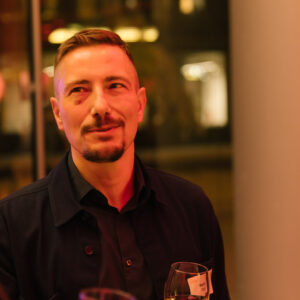
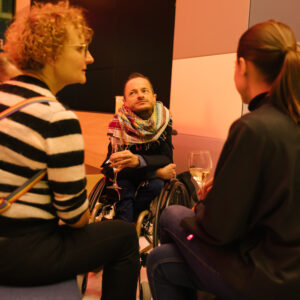
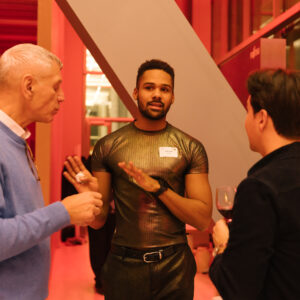


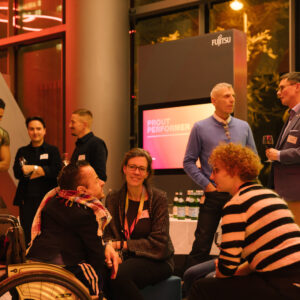

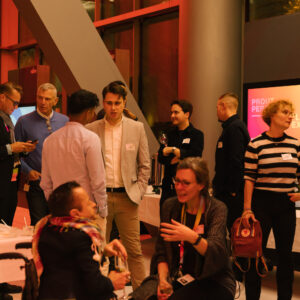

Credits: Francesco Giordano
Kindly supported by
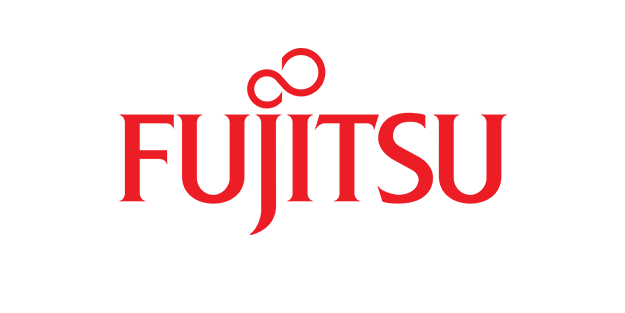
BIG IMPACT INITIATIVE AWARD:
UNITE von Covestro
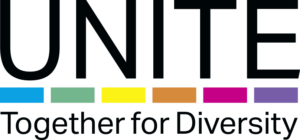
Some business areas are reached more by LGBT*IQ business networks, others have hardly any points of contact with them. To date, there have been few best-practice examples of LGBT*IQ awareness-raising work in production companies. UNITE, the LGBT*IQ network of Covestro Deutschland AG, has raised awareness of LGBT*IQ in production. The response was consistently positive, so further events are planned in various areas and at different locations. This makes UNITE a true pioneer, as there have been no best practice examples from other production companies to date.
RISING STAR AWARD:
bunt/lb von nord/lb
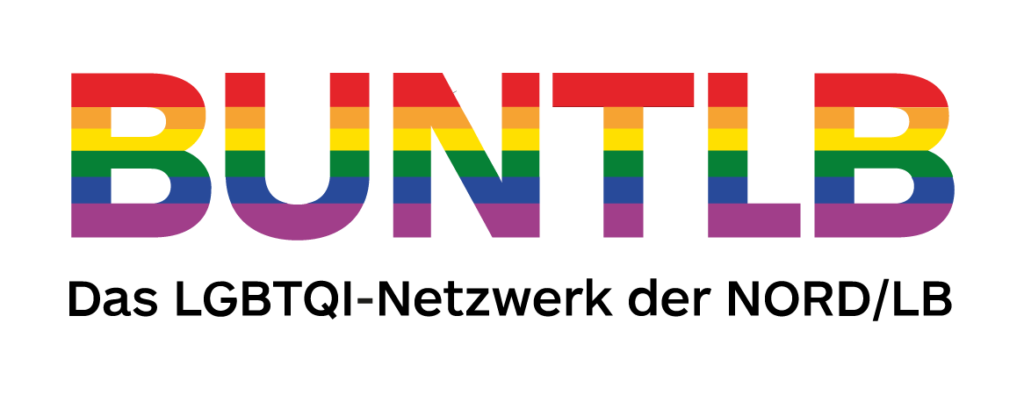
Despite being founded at the beginning of last year, this network has already planned and carried out a large number of creative activities. BUNT/LB stands for acceptance and understanding at all levels of coexistence. In addition to representatives of the LGBT*IQ community, Allys are also committed to the interests of the network as members of the foundation; the chairwoman also acts as a patron.
On this year’s Diversity Day, BUNT/LB called on all employees to paint white rubber ducks in bright colors. The more than 200 creatively designed ducklings from various locations then went swimming together in the company pond. This creative idea was the deciding factor in choosing BUNT/LB.
GLOBAL LEADER NETWORK AWARD:
shine von pwc
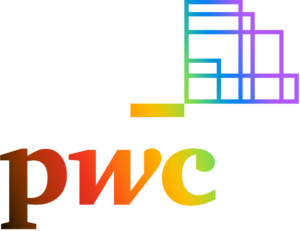
This network has not only been advocating for the LGBT*IQ community for ten years, but is also active in over 30 countries worldwide. In 2023, Shine introduced its first Global LGBT*IQ Inclusion Strategy, which aims to further promote equal opportunities for the LGBT*IQ community with concrete measures and objectives. These measures include raising awareness among managers, expanding the network, collecting data on the needs of LGBT*IQ employees, providing educational opportunities and increasing visibility through role models.
In order to provide employees with these learning experiences, workshops, discussion panels and other events were offered throughout June – including across national borders – thus living up to Shine’s title of “Global Leader”.
sustainability AWARD:
pride+ von hogan lovells
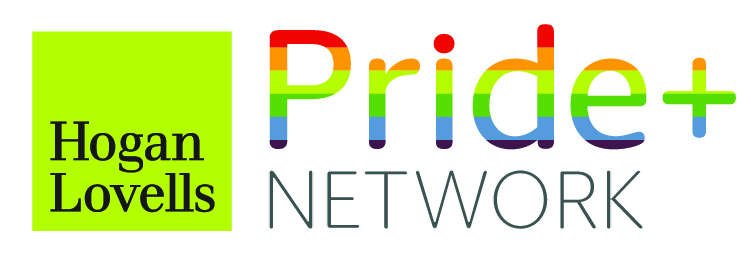
At Hogan Lovells, diversity and inclusion are seen as a strategic priority at all international locations, as evidenced by policies on discrimination that protect all LGBT*IQ identities and a separate gender pronoun policy. In the six years since its creation, Pride+ has set itself the task of training all employees and managers on unconcious bias and integrating the topic of LGBT*IQ into recruitment processes. In Germany itself, a recommendation on gender-neutral language in the workplace has also been in place for two years, which is reinforced in the long term through repeated training.
X has developed into a platform on which racist, queer- and trans-hostile, anti-Semitic as well as other misanthropic content is becoming more and more widespread. This content is not deleted or prosecuted. Instead, since Elon Musk took over, words like “cis” or “cisgender” are considered offensive.
Musk bought Twitter in October 2022 for 44 billion US dollars and has since laid off more than half of all employees. Instead, he introduced a subscription model in which users receive the blue verification tick in exchange for a monthly or annual payment. Thanks to this, profiles that spread discriminatory content reach an even wider audience.
PROUT AT WORK rejects any form of discrimination and advocates for LGBT*IQ equal opportunities. The foundation creates inclusive spaces where discrimination and prejudice have no place. Therefore, remaining at X is no longer justifiable for PROUT AT WORK.
The PROUT AT WORK Foundation joins the German Federal Anti-Discrimination Agency, the German Trans* Association, the German Society for Transidentity and Intersexuality and many other associations and organizations to set a sign against hate and for diversity.
“Our exit from X is a clear signal to the public that we do not tolerate hate speech. We want to encourage other organizations to take this step as well and end their presence on X,” said Albert Kehrer, CEO of the PROUT AT WORK Foundation. “Platforms and social media need to be aware of their responsibility and take effective measures to combat anti-human speech and discrimination and protect marginalized groups.”
IInterested people can still find PROUT AT WORK on the social networks Instagram, Facebook and LinkedIn.
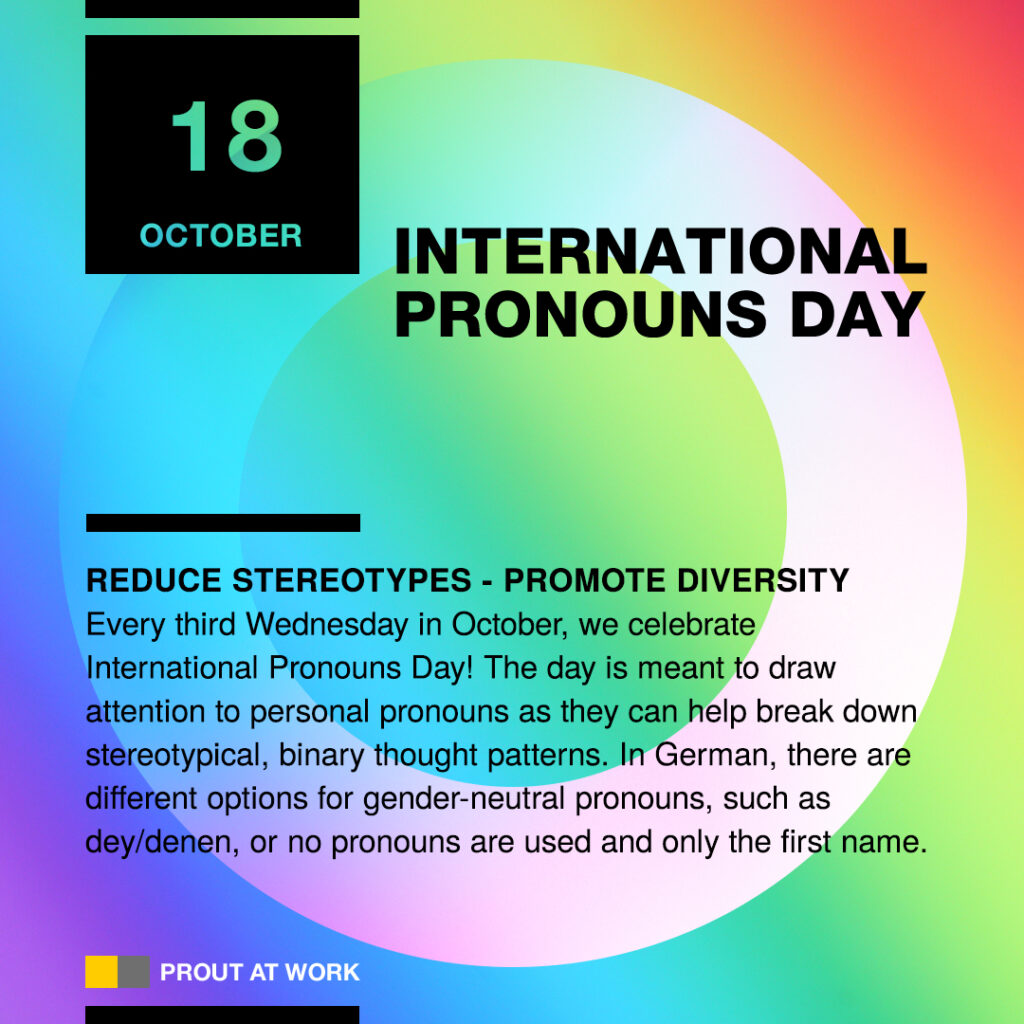
Today is #InternationalPronounsDay! This day takes place annually on the third Wednesday in October and is dedicated to the topic of personal pronouns.
Especially for people who do not identify as (strictly) male or female, but for example as genderfluid or non-binary, pronouns can be important to express their gender identity.
In this context, a person’s appearance says nothing about the pronouns that person uses. That’s why it’s always important to ask about the pronouns!
Many LGBT*IQ people use neopronouns to distance themselves from binary gender thinking and feel comfortable in their identities.
Mentioning one’s own pronouns can help to free oneself from stereotypical binary thought patterns and contribute to sensitization in our society. Not every person necessarily uses the pronouns “he” or “she,” and it is important to treat these people with respect.
A study by the Trevor Project confirms that non-binary youth are more likely to struggle with mental health issues than cis youth. In other words:
Addressing the issue and being mindful of how people want to be addressed can save lives.
Pronouns in the Workplace:
Visibly placing your pronouns shows support and helps avoid misunderstandings.
You can place your pronouns…
- … in the e-mail signature
- … in Microsoft Teams
- … in Zoom
- … at the physical desk by sticker or name tag
- … etc.
Gender neutral pronouns – examples:
They/Them
They are on the phone right now.
This is their desk.
The presentation was created by them.
The parcel is for them.
No pronouns
Anouk is on the phone right now.
This is Anouk’s desk.
The presentation was created by Anouk.
The parcel is for Anouk.
Together with Marcus Brieskorn from radioSUB PROUT AT WORK Board Member Jean-Luc Vey talked about the Rainbow Chat Deck.
“The idea behind the Rainbow Chat Deck was to develop a tool, through which people can get into an exchange about LGBT*IQ. Through the questions and individual answer options, the cards are also meant for people who have had very little to do with the topic so far.”
You can find the whole interview here (GERMAN):
Rainbow Chat Deck

DR. SHIVAJI DASGUPTA
“HAVING THE FREEDOM TO BE WHO YOU ARE GIVES YOU SO MUCH MORE AGENCY AND ALLOWS FOR SO MUCH HIGHER PRODUCTIVITY BECAUSE YOU DON’T HAVE TO HIDE ANYTHING.”
Many people think that sexual or gender identity has no place in the workplace and therefore does not need to be discussed. But the truth is different – the hiding of LGBT*IQ employees who are not outed is often at the expense of team spirit, energy and motivation in the workplace and limits the productivity of these people immensely. For this reason, it is important to create an “open and inclusive corporate culture that supports all employees in using their full potential to achieve the company’s goals.” – says Albert Kehrer, Chairman of the PROUT AT WORK Foundation. To get one step closer to this goal, this year’s DINNER BEYOND BUSINESS keynote speaker – Dr. Shivaji Dasgupta – provided powerful insights into his world as an out executive during a “Fireside Chat” and highlighted the importance of commitment to LGBT*IQ equal opportunities on the part of companies.
At the PROUT AT WORK Foundation’s 6th DINNER BEYOND BUSINESS, hosted by Deutsche Post DHL Group in Bonn, the focus was on the commitment of companies and their leaders to the LGBTIQ community. “We are all united tonight by the desire for people to be able to come to the workplace with their authentic selves and not have to hide a significant part of their personality.” – said Dr. Thomas Ogilvie, Member of the Board of Management and Labor Director of Deutsche Post DHL Group in his welcoming speech. More than 35 senior executives from major companies and institutions accepted the invitation, including representatives from BASF, Clifford Chance, Continental, Commerzbank, Ergo, IKEA, ING Diba, NTT Data, Oracle, Otto, Robert Bosch, Sandoz, Sodexo and UniCredit. In the immediate vicinity of the Rhine, the participants of the top-class information and networking event enjoyed an exclusive dinner. Albert Kehrer explained the background of DINNER BEYOND BUSINESS in his welcoming speech: “We believe that there is a business case behind the support for LGBTIQ: an individual one for the people who come out, but also on a corporate level – whether B2B or B2C.” The highlight of the evening was the “Fireside Chat” by the CEO of the host PROUT AT WORK Foundation, together with keynote speaker Dr. Shivaji Dasgupta, Out Executive and Chief Data Officer at Unicredit on diversity, responsibility and leading by example.
“People then know they can trust you on other issues as well – you get an added bonus of trust as a leader if you’re completely open and honest.”
At the beginning of the 45-minute talk, Dasgupta shared private insights as an out executive: “99% of the reactions to my coming out have been overwhelmingly positive. Having the freedom to be who you are gives you so much more agency, and allows for so much higher productivity because you don’t have to hide anything.” At the same time, it has a clear impact on the professional environment: “People then know they can trust you on other issues – you get an extra trust bonus as a leader if you’re completely open and honest.” According to Dasgupta, companies also benefit considerably from their commitment to LGBT*IQ equal opportunities, whether through better results due to more diverse teams or when recruiting talented employees.
“Executive Allies are so important because they send a very strong signal throughout the organization that discriminatory behavior will not be tolerated.”
Also highlighted in the “Fireside Chat” was the influence of Allies: “Executive Allies are so important because they send a very strong signal in the organization that discriminatory behavior will not be tolerated.” Against the backdrop of different legal realities for LGBT*IQ around the world, the Indian-born executive is also concerned about valuing and taking advantage of freedoms here:
“We should all feel fortunate to be where we are and take this opportunity to help others.”
Drawing of the talk with DR. SHIVAJI DASGUPTA
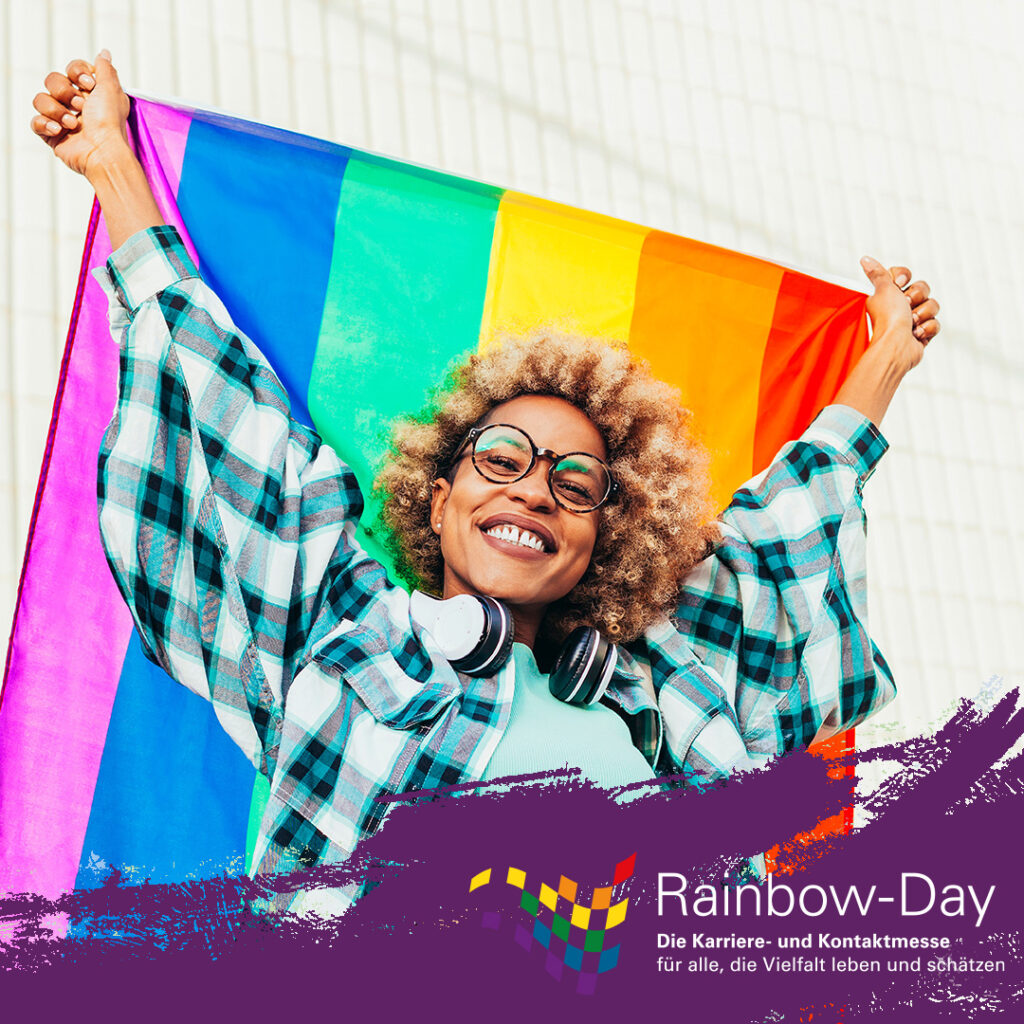
We are happy to be part of the first Rainbow Day on July 13 at the Goethe University in Frankfurt am Main.
The Rainbow Day provides all interested parties with an exceptional opportunity to enter into discussions with companies in a pleasant atmosphere, to explore their own career opportunities and to learn how a modern company offers all employees a contemporary, appreciative working environment.
The booth discussions at the exhibition stands in the auditorium center, which go beyond the company booths, offer an opportunity for exchange. Many other partners of Rainbow Day are represented: University institutions, student associations, the press – diversity is important to all of them.
The supporting program with lectures and panels goes one step further in terms of content and is also of interest to all those who do not currently wish to embark on a (new) career path.
The visitors’ lounge offers space to linger and exchange ideas, and free drinks are available here.
More information about the event is available on the Rainbow Day website (German):
Informationen für Besucher*innen – RainbowDay
RECAP
We were pleased to welcome Maxi Pichlmeier as a guest at our PROUT PERFORMER Lunch Talk on Thursday, May 4, 2023.
Click here for the recording of the conversation (German):
about Maxi:

For those who don’t know Maxi, digital media are anything but foreign to him and he has a lot to say when it comes to queer life, politics and media. Because being queer is still political in 2023! Maxi Pichlmeier’s TikTok account is all about queer news, queer politics and the gay community, to which he himself belongs. In his videos he processes his own experiences and wants to bring news to young (queer) people.
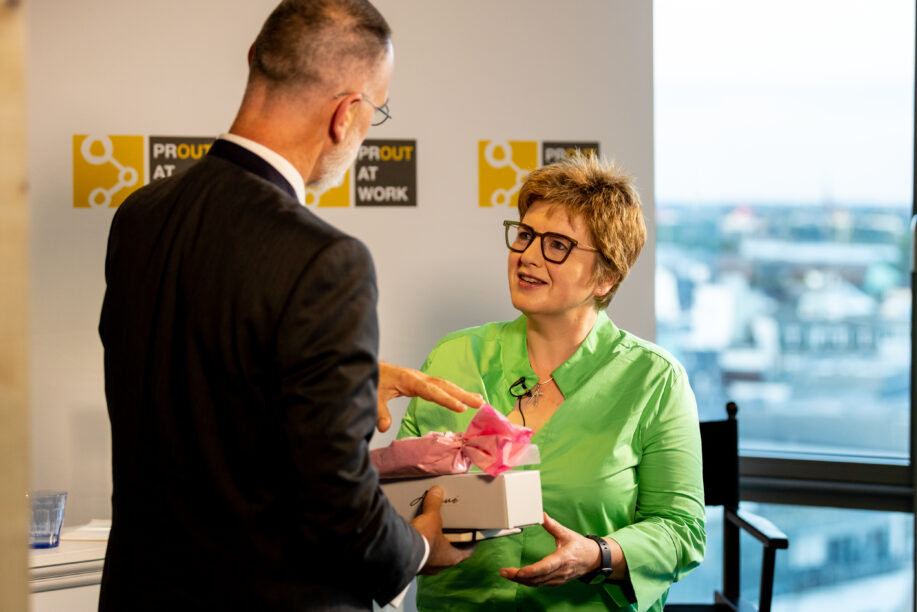
Margot Slattery
“Queer people make up 10 to 11 percent of society. Our lives do not just happen in one particular month.”
We often hear that queer people are just a minimal part of our society. So why bother advocating for the LGBT*IQ community outside of Pride Month? Simple: because the truth is different. Queer people make up a much larger portion of society than some might think, a full 10 to 11 percent. Due to a lack of representation and visibility, as well as fear of negative consequences, many queer people still do not dare to come out in the workplace. So did the keynote speaker at the fifth DINNER BEYOND BUISNESS, Margot Slattery, for much of her career. In a face-to-face conversation with Albert Kehrer, she shared how her coming out has impacted herself and others, and the importance of leadership engagement for queer employees.
After a two-year break due to the pandemic, the PROUTATWORK Foundation was finally able to organize the DINNER BEYOND BUSINESS again. For the fifth time, more than 35 senior executives from major German and international business companies and institutions met – this time at Google’s headquarters in Hamburg. Among them were representatives from Accenture, BASF, Clifford Chance, Commerzbank AG, Ernst & Young, KPMG, LaSalle, Linde, PricewaterhouseCoopers, Sandoz, Sodexo and UniCredit. With a beautiful view and sunny weather, the participants of the information and networking event enjoyed an exclusive dinner in an informal atmosphere. The highlight of the event was the 45-minute talk with keynote speaker Margot Slattery, which focused on the importance of the commitment of companies and their executives to the LGBT*IQ community..
“Visibility of outed leaders is hugely important because it makes the company a safe space for queer people.”
At the beginning of the talk, Margot Slattery gave private insights into her professional career. She described her outing as a personal liberating blow, because for the first half of her professional life she was not yet outed as a lesbian and therefore could not be as free and productive as she was able to be in the second half of her career. However, Margot feels that her coming out was not only a liberating blow for herself, but also a duty, because it allowed her to serve as a role model for colleagues. In this context, the speaker also speaks of the enormous importance of Allys, because it is not enough to “just” tolerate. Queer people need supporters who fight alongside them for an open society. According to Slattery, it is the duty of management to promote diversity in professional life, both internally and externally, for example by supporting NGOs.
“We must not let up, we must continue to show continuous commitment – not only during Pride Month. Because: tolerance, acceptance and freedom don’t happen overnight.”
Finally, Margot Slattery summarizes that a lot has already happened in terms of diversity and inclusion, but warns against resting on our laurels. If we do not continue to fight consistently and loudly, we will come to a standstill or, in the worst case, even regress.
